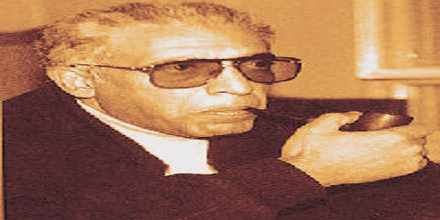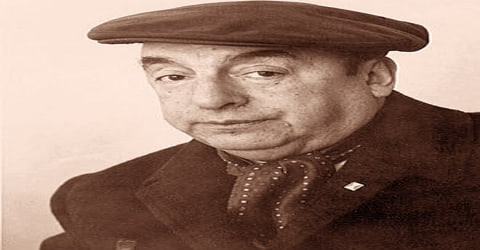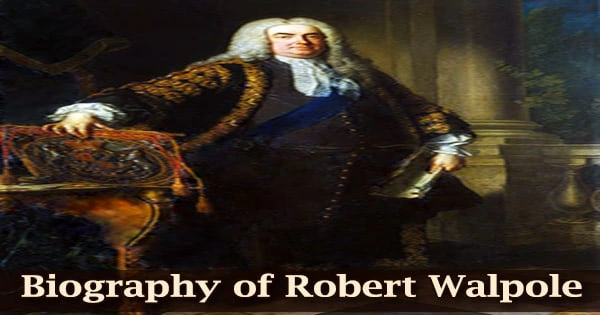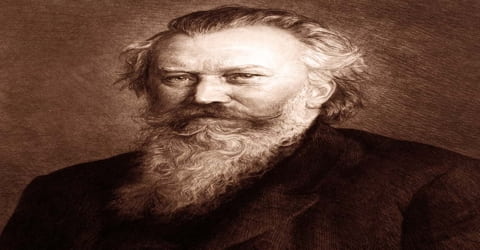Abdul Rahman Munif – Writer (1933-2004)
Full Name: Abdul Rahman Munif
Date of birth: 29 May, 1933
Place of birth: Amman, Jordan
Date of death: 24 January, 2004 (aged 70)
Place of death: Damascus, Syria
Occupation: Writer
Nationality: Saudi Arabian
Writing Period: 1973–2004
Genre: novel
Early Life
Abdel Rahman Munif (Arabic: عبد الرحمن منيف) was born on 29 May, 1933, in Amman, Jordan. He was a Saudi novelist. His novels include strong political elements as well as mockeries of the Middle Eastern elite classes. His work so offended the rulers of Saudi Arabia that many of his books were banned and his Saudi citizenship revoked.
He used modernist narrative techniques resembling magical realism, and promoted a new genre of fiction that reflected the social, political and economic realities of modern Arab society. He devoted most of his works to defending the freedom and dignity of the Arab individual, regardless of his/her geographic location. He discussed Repression, Corruption, Reverence for Bedouins and Crisis in the Arab World like Oil, Political Islam, and Dictatorship, through his work.
He had been stripped of his Saudi nationality in 1963 for his open identification with Marxist thought and for criticizing the regime. Many of his books were banned in Saudi Arabia and he was excluded from the Saudi Arab literature encyclopedia. His masterpiece of 15 novels is the “Cities of Salt” quintet that follows the evolution of the Arabian Peninsula from land of Bedouin nomads to a rich and powerful oil kingdom. All of his works explores the theme that “Arabs have been the victims of their rulers and the foreigners especially in the oil countries”.
He began writing in the 1970s after he left his job with the Iraqi ministry, quit the Ba’ath party, and moved to Damascus, Syria, removing himself from a regime he opposed. He quickly became known for his scathing parodies of Middle Eastern elites, especially those of Saudi Arabia, a country which banned many of his books and stripped him of Saudi citizenship. He used his knowledge of the oil industry to full effect criticizing the businessmen who ran it and the politicians they served.
Another most celebrated of his novels, is “East of the Mediterranean” (1975), he graphically condemns prisons, Arab dictatorships and repression. The book was banned by many Arab countries.
Personal and Educational Life
Munif was born in Amman, Jordan in 1933 to a Saudi father and Iraqi mother. Soon after Munif’s birth his father died but the family remained in Jordan and he was brought up largely by his Iraqi grandmother. “He went first to a kuttab for traditional learning of Quran, before being admitted to an elementary school next to headquarters of Glubb Pasha, the British commander who largely ran the Transjordanian state for the Hashemite dynasty under the mandate. Political events, like the mysterious death of Gazi, king of Iraq, in 1939 and disastrous Arab -Israeli war of 1948, pressed on the boy from the start”.
In 1952 he moved to Iraq to study law at the University of Baghdad.
In February 1955, Munif participated in protests against the Baghdad Pact signed by Nuri al- Said’s regime with Britain, Turkey, Iran and Pakistan. Due to his joining the protests as a political activist, he was expelled from Iraq along with dozens of other Arab student activists, before completing his university education. From Baghdad, Munif moved to Egypt where he pursued his academic study 1956 and a year after he graduated in low, from Cairo University. In 1958 he won a Ba’ath Party scholarship to Yugoslavia where he got his Ph.D. in oil economics from Belgrade University in 1961.
Writing and Working Career
Munif was the author of fifteen novels. The Cities of Salt quintet followed the evolution of the Arabian peninsula as its traditional Bedouin culture was transformed by the oil boom. The novels portray the history of a broad region, evoking comparisons to William Faulkner’s Yoknapatawpha County. The quintet begins with Mudun al-Milh (مدن الملح, Cities of Salt, 1984), depicting the desert oasis of Wadi al-Uyoun as it is transformed and destroyed by the arrival of Western oilmen, a story similar to that of the disrupted village of Chinua Achebe’s Things Fall Apart.
He returned to Arab world, Beirut, Lebanon and worked for the Ba’ath Party’s head office for a year. “In 1963, his political activities caused stripping of his Saudi nationality, when he criticized the regime”. In the same year, when the Ba’th came to power in Iraq and Syria, Munif criticized brutality of Ba’th. As result of his view the Salih al Sa’di’s government denied him entry to Iraq when he needed it most. In 1964, he went Syria, where the party held on power, settled in Damascus, for nearly a decade (1964 – 1973) and worked as an expert in the Syrian Oil Ministry.
Before long, Munif left his job with the Syrian Oil Ministry. “In 1973, he moved to Beirut to work on editing “Al-Balagh” cultural journal and left Beirut after outbreak of the Lebanese civil war in 1975, settling once again in Baghdad. He worked as a consultant for the Organization of Petroleum Exporting Countries (OPEC) and as an editor-in-chief of the journal “Al-Nift Waa Al-Tanmiya” (Oil and Development) in Baghdad. The Iraq-Iran War (1980-1988) pushed Munif to leave Iraq for France, taking up residence in Boulogne near Paris, where he remained until 1986. He then moved to Damascus, Syria where he settled down, devoting himself to writing up until his death”.
While his works were never particularly successful in the West, throughout the Middle East they are critically acclaimed and extremely popular. Cities of Salt was described by Edward Said as the “only serious work of fiction that tries to show the effect of oil, Americans and the local oligarchy on a Gulf country.”
Munif lived in Syria since the late 1980s, and was granted Syrian citizenship. Very soon, he became known for his souring parodies of Middle Eastern elites, especially those of Saudi Arabia, a country which banned many of his books. He began writing only in the 1970s after he had left his job with the ministry of oil, quit the Ba’ath party, and as such he severed bonds with a regime he opposed. He made the most of his knowledge of the oil industry to sail into both the technical and political administration.
Munif reveals his motives to move to literature from oil economics in an interview published in alsafeer, the Lebanese daily: “My great gamble was in politics, but after I experimented with Political activism, it became apparent that the available political methods were insufficient and unsatisfactory. As a result, I started the search for a formula to connect with others and to express their concerns and the concerns of the historical period and the generation. Given my hobby of reading, especially the novel, I thought that my reading and command of expression would enable me to substitute one tool with another. Instead of the political party or direct political action, it was possible for the novel to be a means of expression. This is why I came to the novel. As for economics, especially that of oil, it was useful background for reading societies, mainly the powerful ones, at this current stage. Thus, economics and other sciences could assist the novelist in reading and understanding the factors that shape society. This places the novelist in a better position as far as his narrative tools are concerned”. Munif believed that Books are an effective vehicle for change.
Munif observes that “the mission of literature is to increase awareness and receptiveness in an attempt to create cases for renaissance and revival”. He accepted the fiction as his best means of changing harsh realities and he believed that the Arabic novel is the history of those who do not have a source of historical reference.
Munif defies classification in terms of his nationality. “He has lived in Egypt, Yugoslavia, Iraq, France, and in Syria. He could be described an Arab Cosmopolitan in the sense that, while his cosmopolitanism is sophisticated, it is not western-centered”. His particular target was injustice.
His works have variety of themes and structures and the main theme of works is freedom of individual.
“All his novels have several features in common, in particular the author’s passionate concern for the freedom of the individual vis- a-vis an oppressive totalitarian regime”. Munif was a fierce critic of Saddam Hussein and his regime, but he was also utterly opposed to the American invasions of Iraq and other Arab oil countries.
Oil and politics had filled his life, and oil had been his first career; with a doctorate in oil economics, he worked as director of crude oil marketing in the Syrian Oil Company and later as editor in chief of the magazine Oil and Development in Baghdad.
Munif’s magnum opus is the Mudun Al-Milh (Cities of Salt). It is the longest novel in modern Arabic literature, which took more than six years to be written at 2,500 pages and was banned in several Middle Eastern countries, including Saudi Arabia. It followed the evolution of the Arabian Peninsula. Daniel Burt, in his The Novel 100, ranked the quintet as the 71st greatest novel of all time.
The five-part novel the (1984-89) registers the history of Arab life through the critical eye of an insider. Each of its five volumes has a different plot and are unified with a distinctive tone. The first volume, “Al-Teeh” (The Wilderness, 1984), covers the years from 1933 to 1953. The second volume, “Al-Ukhdood” (The Trench, 1985), deals with historical events between 1953 and 1958. The third volume, “Taqaseem Al-Layl Waa Al-Nahar” (Variations on Day and Night, 1989), moves backward to the period between 1891 and 1930. The fourth, “Al-Munbatt” (The Uprooted, 1989), moves forward to the years between 1964 and 1969. The fifth, “Badiyat Al-Dhulumat” (Desert of Darkness, 1989), which is divided into two parts, first returns to 1920-35, and then moves to 1964-75.
Munif lived in Egypt, Yugoslavia, Iraq, France, and in Syria. In that sense, he could be described an Arab Cosmopolitan. He criticized Arab nations because of their stands against Israeli violence on Palestine. His literary works were translated into over 10 languages and during his lifetime.
As a writer, Munif used oil to tell Arab stories as well as the story of Anglo-American competition in Iran as in his novel Long Distance Races.
As a political thinker, it maddened him that oil wealth, instead of modernizing Arabian society, enthroned and perpetuated backward monarchies allied with primitive religious establishments as well as Western governments, and who, incidentally, stole huge amounts of that wealth. With his typical understated tact, Munif asked in an op-ed in London’s Guardian in 1990, “Aren’t we obliged to ask why it is assumed that more modern governments would necessarily be inimical to the interests of the West?”
As an economist, Munif had a vision theme that the Oil is our one and only chance to build a future, and the regimes are ruining it, and Oil, provides the sole and final opportunity for the region to develop itself rather than depend upon others as was the case in the past and as may happen in the future if the present misuse of oil wealth continues.
Death
Munif passed away on January 24, 2004 after a prolonged sickness while living in exile in Syria. Munif has not been awarded the recognition he deserves, especially in the English language, but he will be remembered as the Arab novelist who enriched Arabic culture through his literary prose. ”According to Ibrahim Nasrullah, Jordanian Novelist, Munif was one of the most courageous and noble wrier in the Arab world”.
Honours
Munif received a number of awards. “He won the Al-Uwais Cultural Award the Arab equivalent of the Nobel Prize for Literature in 1989.
He also received the most prestigious of which was the Cairo Award for Creative Narration in 1998.
He was rumored to have been on the short list for the Nobel Prize the year that Naguib Mahfouz won”.
















